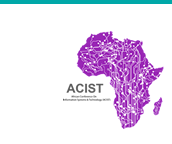Location
Malawi University of Science & Technology, Malawi
Start Date
25-8-2022 2:00 PM
End Date
25-8-2022 2:25 PM
Description
During Covid, Higher Education Institutions were forced to move from face-to-face learning to emergency remote learning. The social exclusion of students may occur due to various factors relating to the prevalent digital divide and inequality in South Africa. To address the identified gap, this study assessed the student acceptance and use of a low data cost mobile instant messenger during remote learning in a large Information Systems class at a historically disadvantaged institution in the Western Cape, South Africa. The study used a positivistic paradigm. Data was collected from students registered for the third-year information systems module within the Economic and Management Science faculty at the University of the Western Cape. The population size was 315, of which 249 students completed the survey (79% response rate). The research used the UTAUT model as a theoretical model and tested the four main hypotheses to assess behavioural intention and use. The research further tested the relationship between facilitating conditions and behavioural intention. The key findings indicate that four out of the five hypotheses are significant (except performance expectancy) and determined students’ acceptance and use of mobile instant messenger in remote learning. This finding is contrary to existing literature.
Included in
Students’ Acceptance and Use of a Mobile Instant Messenger for Remote Learning during Covid-19: Large Information Systems Class in South Africa
Malawi University of Science & Technology, Malawi
During Covid, Higher Education Institutions were forced to move from face-to-face learning to emergency remote learning. The social exclusion of students may occur due to various factors relating to the prevalent digital divide and inequality in South Africa. To address the identified gap, this study assessed the student acceptance and use of a low data cost mobile instant messenger during remote learning in a large Information Systems class at a historically disadvantaged institution in the Western Cape, South Africa. The study used a positivistic paradigm. Data was collected from students registered for the third-year information systems module within the Economic and Management Science faculty at the University of the Western Cape. The population size was 315, of which 249 students completed the survey (79% response rate). The research used the UTAUT model as a theoretical model and tested the four main hypotheses to assess behavioural intention and use. The research further tested the relationship between facilitating conditions and behavioural intention. The key findings indicate that four out of the five hypotheses are significant (except performance expectancy) and determined students’ acceptance and use of mobile instant messenger in remote learning. This finding is contrary to existing literature.



